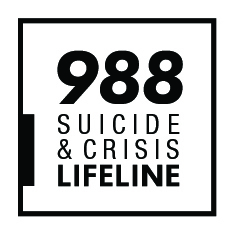Mental Health Matters: How Covid-19 has impacted those with developmental disabilities
By Cindy Boerema, West Michigan Community Mental Health
“The oak fought the wind and was broken, the willow bent when it must and survived.”
For individuals with developmental disabilities, hourly and daily routine schedules are lifelines and help control anxiety. For the past ten months, the Covid-19 pandemic has forced individuals to change how they go through their daily lives. How do you explain to your son that has Down syndrome there is a virus that can kill you and you must wear a face mask when going out at all times?

Erik Boerema, 41, has found ways to adapt to the Covid-19 restrictions. Erik has Down syndrome and receives services through West Michigan CMH.
When Dimensions Unlimited, a gathering place/workshop run by West Michigan Community Mental Health, opened back up in the summer with limited capacity, he was offered the opportunity to return two days per week, but was required to wear a mask. I really didn’t think he’d be able or willing to tolerate a mask, but with practice at home and trying out different masks, it was not a problem at all. Pre Covid-19, he used Dial-A-Ride transportation to get to Dimensions Unlimited, which he loves for the independence. We currently drive him. He informed me that I must take the same roads that Dial-A-Ride takes to bring him to Dimensions Unlimited, so I adapt and go that way.
When Special Olympic basketball and aquatics practices came to a sudden halt, he missed being able to go to practice, but actually missed his friends more. The Special Olympic assistant area director set up a weekly Zoom meeting for athletes to talk to each other.
Friday night take-out supper is a top priority for Erik and that came to a halt, but his family came up with a rotating schedule of homemade Friday night suppers that were delivered safely to each other’s front porches.
For some individuals with developmental disabilities, becoming sedate is a concern. To help motivate Erik to get outdoors, one of his sisters created a scavenger hunt where she printed pictures of objects that he could find around the neighborhood. When he found it, he would check it off. This activity got him out of the house, into the fresh air and made him concentrate on his surroundings. He really enjoyed this.
His annual Camp Sunshine retreat, which he would attend for four days every summer, was canceled and we were afraid he would become depressed. They did do a Zoom event and sent him care packages weekly, which helped him connect with councilors and other campers.
His nieces and sisters created a “Camp Sunny Smiles” where he was able to make crafts, sing, and dance and have a talent show which lasted a week. He was given a photo book of the week of “Camp” that he can reflect on.
There were other summer and fall adventures that were not able to be fulfilled, but we told him truthfully that “we will just have to wait and see. We all need to be safe”.
His nightly “Games of Trouble” with his dad is a highlight of his evening activities. In the last ten months they have played 1,500 games and are still playing to this day!
The take away on all of this is – After 41 years of raising Erik, we still assume that he will not adapt to certain situations or not want to do certain activities and he continues proving us wrong. He informed us a few weeks ago that he wanted an iPhone like he sees everybody else carrying around. We didn’t feel comfortable with it, but instead he purchased an iPod Touch and very quickly adapted to using it. He multitasks daily by watching TV, using his iPad, uses FaceTime with family and writing down people’s ages and sentences out of books.
This whole ordeal of Covid-19 has created a very tense situation for people with disabilities but, as this article shows, they are capable of adapting with a little help from friends, family and organizations such as West Michigan Community Mental Health.
West Michigan CMH is committed to providing the care necessary to improve the lives of children and adults with developmental and intellectual disabilities. To learn more, visit www.wmcmhs.org or call 1-800-992-2061.
Cindy Boerema is a member of the Consumer Advisory Panel at West Michigan Community Mental Health. She serves as an advocate for those living with developmental and intellectual disabilities.
 or
or 